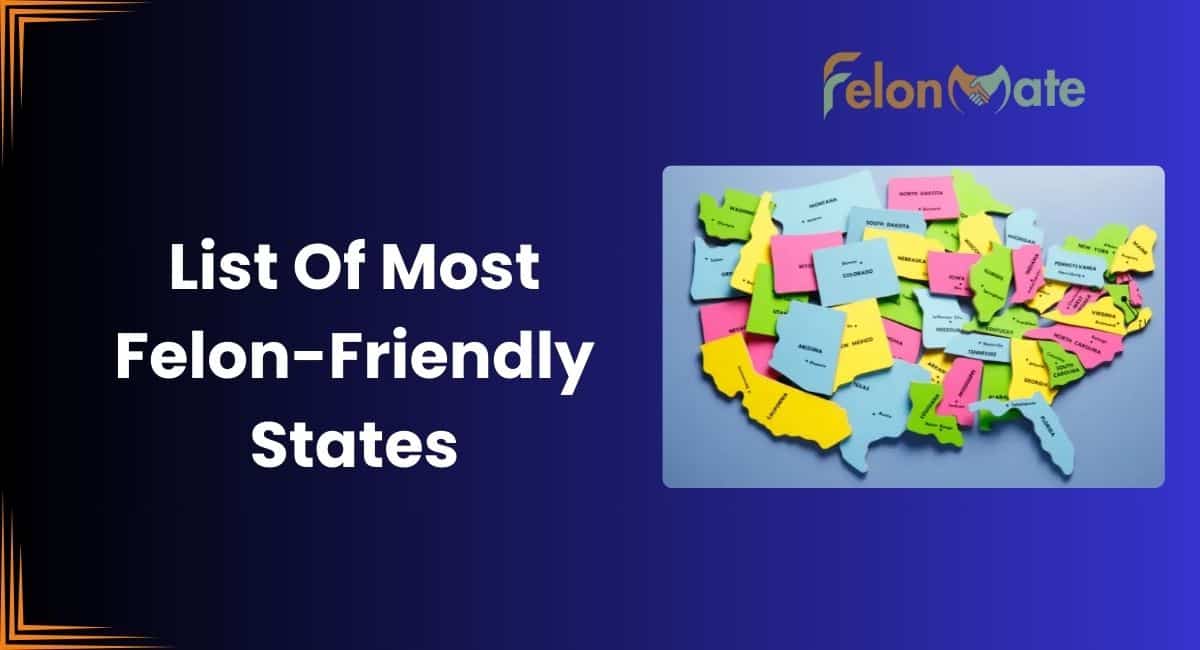Felon Friendly Homes For Rent: Finding A Safe Haven After A Second Chance
Imagine this: you've served your time, paid your debt to society, and now you're ready to start fresh. But wait—finding a place to live feels like an uphill battle. If you're searching for felon friendly homes for rent, you're not alone. Thousands of individuals with criminal records face this exact challenge every year. The good news? There are resources, landlords, and communities willing to give you that second chance you deserve.
It's no secret that the journey back from a felony conviction can be tough. From securing employment to rebuilding relationships, life after incarceration comes with its own set of hurdles. But one of the biggest obstacles is finding a home. Landlords often run background checks, and a criminal record can feel like a red flag. However, the tide is changing, and more landlords are opening their doors to those looking for felon friendly homes for rent.
In this article, we'll dive deep into the world of housing options for individuals with criminal records. We'll cover everything from legal protections to practical tips for finding the right place. Whether you're navigating this process yourself or supporting someone who is, this guide will help you navigate the complexities of finding a home after a felony.
Read also:Beyonceacute Vma Awards 2016 A Night To Remember A Legacy Defined
Understanding the Landscape: Who Needs Felon Friendly Homes?
Before we dive into the nitty-gritty of finding homes for rent, let's take a moment to understand the people behind the statistics. Over 65 million Americans have a criminal record, and many of them face discrimination when searching for housing. This isn't just a number—it's a reality for countless individuals and families trying to rebuild their lives.
Here's a quick breakdown of the demographics:
- Age: The majority of individuals with criminal records are between 25 and 44 years old.
- Race: African American and Hispanic communities are disproportionately affected by the criminal justice system.
- Family Status: Many felons are parents or primary caregivers, making the need for stable housing even more critical.
Understanding these statistics is key to appreciating the importance of felon friendly homes for rent. It's not just about finding a roof over your head—it's about creating a foundation for a new life.
Key Challenges Faced by Ex-Felons in the Housing Market
Now that we've set the stage, let's talk about the challenges. The housing market can be brutal for individuals with criminal records. Here are some of the most common hurdles:
- Background Checks: Many landlords conduct thorough background checks, which can reveal past convictions.
- Discrimination: Unfortunately, some landlords outright refuse to rent to individuals with criminal records, regardless of the nature of the offense.
- Financial Barriers: Finding affordable housing is hard enough, but add a criminal record to the mix, and the options shrink even further.
But don't lose hope. There are solutions, and we'll explore them in the next sections.
Read also:My Eva Food Truck The Ultimate Street Food Experience You Cant Miss
Legal Protections for Renters with Criminal Records
Did you know that there are laws in place to protect renters with criminal records? While it may seem like the odds are stacked against you, federal and state regulations can help level the playing field. Here's what you need to know:
Fair Housing Act (FHA): The FHA prohibits discrimination based on race, color, national origin, religion, sex, familial status, or disability. While criminal history isn't explicitly covered, discriminatory practices against individuals with criminal records can still violate the FHA if they disproportionately affect certain groups.
Housing Choice Vouchers: Also known as Section 8, these vouchers can help low-income individuals, including those with criminal records, afford housing. While landlords can still run background checks, voucher programs often have specific guidelines for considering past convictions.
State and Local Laws: Some states and cities have additional protections for renters with criminal records. For example, California and New York have laws limiting the use of criminal history in rental decisions.
Practical Tips for Navigating Legal Protections
Knowing your rights is one thing, but putting them into practice is another. Here are some tips to help you navigate the legal landscape:
- Do Your Research: Familiarize yourself with the laws in your state or city. Knowing what protections are available can empower you to advocate for yourself.
- Communicate Effectively: If a landlord denies your application based on your criminal record, ask for a clear explanation. This can help you determine if your rights were violated.
- Seek Legal Assistance: If you believe you've been discriminated against, don't hesitate to reach out to a legal aid organization or housing counselor for guidance.
Resources for Finding Felon Friendly Homes for Rent
Now that we've covered the legal side, let's talk about resources. There are several organizations and platforms dedicated to helping individuals with criminal records find housing. Here are a few to check out:
- RentLingo: This platform connects renters with landlords who are open to renting to individuals with criminal records. It's a great place to start your search.
- Housing Opportunities Made Equal (HOME): HOME provides resources and advocacy for fair housing practices, including support for renters with criminal records.
- Local Nonprofits: Many cities have nonprofits focused on reentry services, including housing assistance. A quick Google search can help you find organizations in your area.
Remember, you're not alone in this journey. These resources can provide valuable support and guidance as you search for a new home.
How to Use These Resources Effectively
Having access to resources is great, but knowing how to use them is even better. Here are some tips for making the most of the resources available:
- Create a Strong Application: Highlight your strengths and any steps you've taken to improve your life since your conviction. This can include references, job history, or volunteer work.
- Be Honest and Transparent: While it may be tempting to omit information about your criminal record, honesty is always the best policy. Landlords appreciate transparency and may be more willing to work with you if you're upfront about your past.
- Follow Up: If you submit an application through a resource platform, don't be afraid to follow up with the landlord or organization. Persistence can pay off.
Practical Tips for Finding Felon Friendly Homes for Rent
Now let's get into the nitty-gritty of the search process. Here are some practical tips for finding a home that's welcoming to individuals with criminal records:
1. Start Local: Sometimes, the best homes for rent are found through word of mouth or local listings. Check out community boards, Craigslist, or Facebook groups for housing opportunities.
2. Build a Portfolio: Create a portfolio that showcases your strengths as a tenant. This can include references from previous landlords, proof of income, and any certifications or training you've completed.
3. Be Prepared to Negotiate: If a landlord is hesitant to rent to you, be prepared to negotiate. You might offer to pay a higher security deposit or provide additional references to ease their concerns.
Common Mistakes to Avoid
While searching for a home, it's important to avoid common pitfalls that could derail your efforts. Here are a few to watch out for:
- Applying Without Preparation: Don't rush into applications without having all your ducks in a row. Make sure you have a strong application package before submitting.
- Ignoring Red Flags: If a landlord seems overly skeptical or discriminatory, it might be best to move on. There are better opportunities out there.
- Overlooking Affordable Options: While it's tempting to aim for the perfect home, sometimes the best option is one that fits your budget and meets your needs.
Landlords Who Rent to Felons: What to Look For
Not all landlords are created equal. Some are more open to renting to individuals with criminal records than others. Here's how to identify the right landlords:
1. Look for "No Background Check" Listings: While not all landlords who skip background checks are felon friendly, it's a good starting point.
2. Check for Positive Reviews: If a landlord has a history of working with renters with criminal records, they're likely to have positive reviews from past tenants.
3. Ask Questions: Don't be afraid to ask landlords about their policies regarding criminal records. A landlord who's open and transparent is more likely to be a good fit.
How to Build a Relationship with Landlords
Building a strong relationship with your landlord can make all the difference. Here are some tips for fostering a positive landlord-tenant relationship:
- Communicate Regularly: Keep your landlord informed about any issues or concerns. Open communication can prevent small problems from becoming big ones.
- Pay Rent on Time: This may seem obvious, but paying rent on time is one of the best ways to build trust with your landlord.
- Respect the Property: Take care of the home and treat it with respect. A well-maintained property is a landlord's dream.
Managing Finances to Secure Housing
Financial stability is key to securing a home, especially if you have a criminal record. Here are some tips for managing your finances to improve your chances:
1. Create a Budget: Know exactly how much you can afford to spend on rent each month. This will help you focus your search on homes within your price range.
2. Build Credit: If your credit score is low, take steps to improve it. Paying bills on time and reducing debt can make a big difference.
3. Save for a Security Deposit: Many landlords require a security deposit, which can be a significant expense. Start saving early to ensure you have the funds when you need them.
Financial Assistance Programs for Renters with Criminal Records
There are several financial assistance programs available to help renters with criminal records. Here are a few to explore:
- Housing Choice Vouchers: As mentioned earlier, Section 8 vouchers can help cover the cost of rent for low-income individuals, including those with criminal records.
- Local Housing Authorities: Many cities have housing authorities that offer assistance programs specifically for individuals with criminal records.
- Nonprofit Organizations: Some nonprofits provide financial assistance or support services to help renters secure housing.
Building a Supportive Community
Finally, let's talk about the importance of community. Having a supportive network can make all the difference in your journey to find a home. Here's how to build one:
1. Connect with Others: Join support groups or online communities for individuals with criminal records. Sharing experiences and advice can be incredibly helpful.
2. Seek Mentorship: Find a mentor who has successfully navigated the housing market after a felony. Their guidance can provide valuable insights.
3. Advocate for Change: Get involved in efforts to reform housing policies and reduce discrimination against individuals with criminal records. Your voice matters!
The Power of Community
Building a supportive community isn't just about finding a home—it's about creating a life. Surrounding yourself with positive influences and resources can help you overcome the challenges of reentry and thrive in your new environment.
Conclusion: Your Second Chance Starts Here
Finding felon friendly homes for rent may seem daunting, but it's far from impossible. With the right resources, strategies, and support, you can secure a safe and stable home. Remember, your past doesn't define your future. You deserve a second chance, and there are people and organizations ready to help you make it happen.
So, what's next? Take action! Use the tips and resources in this article to start your search. And don't forget to share this guide with others who might benefit from it. Together, we can create a world where everyone has a place to call home.
Now it's your turn. What steps will you take today to find your perfect home?
Table of Contents


